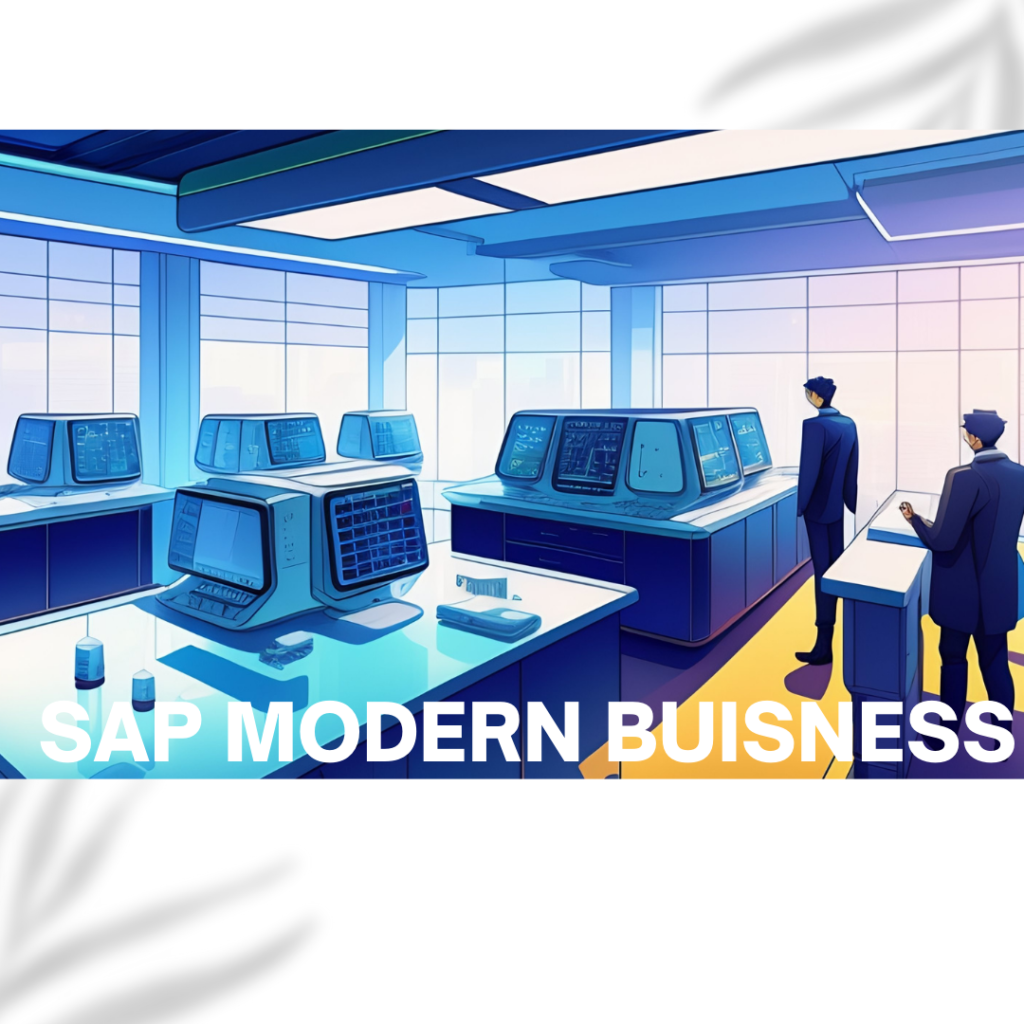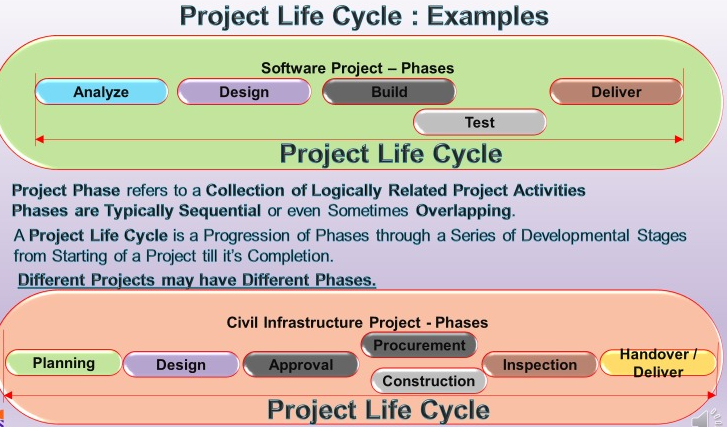Project Management- Cup of Tea
Whether you’re a seasoned professional or just starting out on your SAP journey, buckle up because we’re about to embark on an exciting adventure together!
In this blog, we’re going to explore the ins and outs of SAP project management in a way that’s both unique and friendly. No jargon-filled lectures here – just practical advice, real-world insights, and a dash of humor to keep things interesting.
So, grab your coffee (or tea, we don’t judge) and join us as we navigate through the complexities of SAP project management with a smile on our faces and a spring in our step. It’s going to be a wild ride, but we promise you’ll come out on the other side feeling empowered, inspired, and ready to conquer any SAP project that comes your way.
Welcome aboard, fellow SAP adventurer. Let’s make some magic happen!
Table of Contents
Introduction
Understanding the Significance of SAP in the Modern Business Environment

In today’s rapidly evolving business landscape, enterprises are turning to SAP (Systems, Applications, and Products in Data Processing) for a competitive edge. SAP, a comprehensive suite of software solutions, enables businesses to streamline operations, enhance efficiency, and gain valuable insights through data analytics. Its importance lies in its ability to integrate various functions, such as finance, human resources, and supply chain management, into a unified platform, enabling organizations to achieve operational excellence.
The Role of Project Management Methodology in SAP Implementation
Implementing SAP is a complex and multifaceted process that requires careful planning, coordination, and execution. Project management methodologies provide a structured framework to ensure seamless SAP implementation. By adopting a well-defined methodology, organizations can align their project goals, manage resources effectively, and mitigate risks throughout the implementation journey.

Setting the Stage: Why Mastering Project Management Methodology Matters
Mastering project management methodology is crucial for organizations embarking on SAP implementation. It empowers project teams to navigate complexities, anticipate challenges, and drive successful outcomes. By leveraging the right project management methodology, organizations can optimize their SAP projects, unlock the full potential of SAP’s capabilities, and achieve transformative results.
Exploring SAP Project Management Methodologies

Overview of Popular SAP Project Management Methodologies
Waterfall Methodology: The waterfall methodology follows a sequential approach, with project phases flowing in a linear manner. It involves detailed planning, requirements analysis, design, development, testing, and deployment. This traditional methodology suits projects with well-defined specifications and minimal changes.
Agile Methodology: Agile project management is an iterative and incremental approach that emphasizes flexibility and adaptability. It involves breaking down the project into smaller sprints, allowing for frequent feedback and adjustments. Agile is suitable for dynamic projects where requirements evolve and stakeholder collaboration is crucial.
Agile vs. Traditional: Choosing the Right Approach for SAP Projects
Deciding between Agile and traditional methodologies depends on the nature of the SAP project. Agile is ideal when businesses prioritize adaptability, quick iterations, and collaboration. Traditional methods work best when the project requirements are well-defined and less subject to change. Balancing project characteristics, stakeholder preferences, and organizational culture is essential in selecting the most suitable approach.
Benefits and Limitations of Each Project Management Methodology

Waterfall Methodology:
Benefits: Clear project milestones, well-defined tasks, and in-depth initial planning.
Limitations: Limited flexibility to accommodate changes, potential delays in addressing evolving requirements.
Agile Methodology:
Benefits: Enhanced stakeholder engagement, flexibility to adapt to changing requirements, improved product quality through constant feedback.
Limitations: Requires active stakeholder involvement, challenges with establishing comprehensive initial requirements.
Key Components of Effective SAP Project Management

Defining Project Scope and Objectives: The Foundation for Success
Before commencing an SAP project, it is critical to define the project scope and objectives. This involves identifying the desired outcomes, deliverables, and stakeholders’ expectations. A well-defined scope provides a clear roadmap for project teams, ensuring that efforts and resources are aligned towards achieving specific goals.
Resource Allocation and Management for SAP Projects
Efficient resource allocation and management are crucial for the success of any SAP project. It involves identifying the necessary skills, expertise, and tools required for project execution. By properly allocating resources, organizations can optimize productivity, minimize delays, and ensure effective collaboration among team members.
Stakeholder Engagement and Communication: Building Strong Partnerships
Engaging stakeholders throughout the SAP project’s lifecycle is imperative for success. Consistent and transparent communication facilitates alignment of expectations, promotes stakeholder buy-in, and ensures that project objectives are well understood. Regular updates, stakeholder meetings, and effective channels of communication foster a collaborative environment, enabling project teams to address concerns promptly.
Risk Assessment and Mitigation Strategies in SAP Projects
Risk assessment and mitigation are integral components of effective project management. For SAP projects, it is essential to identify potential risks and develop strategies to mitigate them. By conducting a comprehensive risk analysis, organizations can anticipate challenges, proactively address issues, and minimize the impact of unforeseen events on project timelines and outcomes.
Best Practices for SAP Project Planning and Execution
Conducting a Thorough Needs Analysis: Identifying Business Requirements
A thorough needs analysis is essential to identify specific business requirements and align them with SAP’s capabilities. Understanding the current state of the organization, documenting pain points, and analyzing process gaps enable project teams to design effective solutions that address the unique needs of the business.
Creating a Robust Project Plan with Clear Milestones and Deliverables
Developing a comprehensive project plan is critical to ensure transparency, accountability, and effective coordination. Clear milestones and deliverables serve as guideposts, enabling project teams to track progress, identify deviations, and make prompt adjustments as needed.
The Power of Integration: Aligning SAP Projects with Organizational Strategy
Alignment between SAP projects and the overall organizational strategy is essential to maximize the value derived from the implementation. By integrating SAP projects with business objectives, organizations can ensure that the project outcomes contribute to strategic goals, drive efficiencies, and deliver tangible results.
Managing Change Effectively: Overcoming Resistance and Ensuring Adoption
Successful SAP project management requires effective change management practices. Resistance to change often impedes project progress. By understanding stakeholders’ concerns, providing training and support, and promoting a culture of adoption, organizations can facilitate smooth transitions and ensure that the implemented SAP solution is embraced by the end-users.
Leveraging SAP Tools and Technologies for Efficient Project Management

Utilizing SAP Solution Manager: The Swiss Army Knife of Project Management
SAP Solution Manager serves as a comprehensive toolset for project management. It offers functionalities for project planning, execution, monitoring, and support. By leveraging SAP Solution Manager, organizations can streamline project activities, enhance collaboration, and ensure effective utilization of resources.
Leveraging SAP S/4HANA and Cloud Solutions for Seamless Integration
SAP S/4HANA, an intelligent enterprise resource planning (ERP) system, enables organizations to streamline operations, optimize processes, and gain valuable insights. Additionally, SAP’s cloud solutions provide scalability, flexibility, and enhanced collaboration capabilities. By integrating SAP S/4HANA and cloud solutions into project management, organizations can achieve seamless integration across various functions.
Implementing SAP Project Systems to Streamline Project Execution
SAP Project Systems (PS) module is designed specifically for project-oriented organizations. It facilitates effective planning, execution, and tracking of SAP projects. By utilizing the capabilities of SAP PS, organizations can streamline project execution, monitor progress in real-time, and achieve better project control.
Ensuring Successful SAP Project Delivery

Conducting Effective Project Monitoring and Control
Continuous monitoring and control are essential for successful SAP project delivery. Regularly tracking project progress, identifying deviations, and taking corrective actions ensure that projects stay on track, meet deadlines, and deliver desired outcomes.
Quality Assurance and Testing in SAP Project Management
Quality assurance and testing play a vital role in SAP project management. Rigorous testing ensures that the implemented solution meets the required standards, functions as intended, and is free from errors. By conducting comprehensive quality assurance and testing activities, organizations can establish confidence in the implemented SAP solution.
Go-Live and Post-Implementation Support: Ensuring a Smooth Transition
The go-live phase marks the transition from project delivery to everyday operations. Proper planning, rigorous testing, and effective change management practices ensure that the go-live process is smooth and minimizes disruptions to the business. Post-implementation support, including user training, documentation, and ongoing maintenance, further enhances the success of SAP projects.
Evaluating Success: Key Performance Indicators for SAP Projects
Evaluating the success of SAP projects is essential to measure their impact and identify opportunities for improvement. Key Performance Indicators (KPIs) such as return on investment, customer satisfaction, and system stability provide valuable insights into the project’s outcomes. By regularly monitoring KPIs, organizations can assess project success and make informed decisions for future initiatives.
The Human Element: People, Skills, and Leadership in SAP Project Management
Building and Managing High-Performing Project Teams
Building a high-performing project team is crucial for SAP project success. A diverse team with a mix of skills, expertise, and experience ensures a well-rounded approach to project management. Effective team management, fostering collaboration, and recognizing individual contributions are essential for team cohesion and achieving project objectives.
Investing in Training and Skill Development for SAP Project Management
Investing in training and skill development for SAP project management enhances project team capabilities. Providing training on SAP methodologies, tools, and industry best practices equips teams with the necessary knowledge and skills to navigate complexities and deliver successful projects.
Leadership in SAP Project Management: Inspiring Action and Driving Success
Effective leadership is a catalyst for success in SAP project management. Leaders inspire action, foster a culture of innovation, and drive teams towards excellence. By setting clear expectations, providing guidance, and leading by example, SAP project leaders can motivate teams, overcome challenges, and achieve project success.
Case Studies: Real-World Examples of Successful SAP Project Management

Large-Scale SAP Implementation at Company XYZ: Lessons Learned
In a large-scale SAP implementation at Company XYZ, meticulous planning, stakeholder collaboration, and effective change management strategies were instrumental in achieving success. By involving stakeholders early, conducting thorough testing, and providing extensive user training, Company XYZ ensured that the SAP solution seamlessly integrated with their existing operations, resulting in increased efficiency and improved business processes.
Transforming Business Processes with SAP: A Success Story
An organization went through a transformative journey by leveraging SAP to streamline its business processes. By meticulously aligning SAP implementation with organizational objectives, conducting comprehensive training, and successfully managing change, the organization achieved significant improvements in operational efficiency, better decision-making, and enhanced customer satisfaction.
Overcoming Challenges in SAP Project Management: Case Study Analysis
In a complex SAP implementation, an organization encountered challenges related to scope creep, resource constraints, and resistance to change. However, by employing effective risk assessment and mitigation strategies, engaging stakeholders throughout the process, and providing comprehensive training, the organization successfully overcame these challenges and achieved the desired outcomes.
Summary and Key Takeaways
Recap of the Importance of SAP Project Management Methodology
Mastering project management methodology is pivotal for SAP projects. It ensures proper planning, resource management, stakeholder engagement, and risk mitigation, leading to successful SAP implementations.
Essential Elements for Mastering SAP Project Management
Mastering SAP project management requires a comprehensive understanding of project methodologies, effective planning and execution strategies, leveraging SAP tools and technologies, and recognizing the significance of the human element in driving success.
Unlocking the Power of SAP: Driving Success through Effective Project Management
By maximizing the potential of SAP through effective project management, organizations can unleash the power of SAP to transform their operations, improve efficiency, and drive success in today’s competitive business environment.
FAQ (Frequently Asked Questions)

A. What is SAP, and why is it important for businesses?
SAP is a suite of software solutions that integrate various functions within an organization to streamline operations, enhance efficiency, and gain valuable insights. It is important for businesses as it enables them to achieve operational excellence, optimize processes, and make data-driven decisions.
B. Which project management methodology is best suited for SAP projects?
The choice of project management methodology depends on the characteristics of the SAP project. Agile methodologies suit projects with evolving requirements and collaborative stakeholder involvement, while traditional methodologies work best for projects with well-defined specifications and minimal changes.
C. How can effective stakeholder engagement contribute to SAP project success?
Effective stakeholder engagement ensures alignment of expectations, promotes buy-in, and fosters collaboration throughout the SAP project. By actively involving stakeholders, organizations can enhance project outcomes, address concerns promptly, and achieve successful implementation.
D. What are some common challenges faced in SAP project management, and how can they be overcome?
Common challenges in SAP project management include scope creep, resource constraints, and resistance to change. These challenges can be overcome by conducting thorough needs analysis, engaging stakeholders early, implementing effective change management strategies, and employing risk assessment and mitigation techniques.
E. How do SAP tools and technologies enhance project management efficiency?
SAP tools and technologies, such as SAP Solution Manager, S/4HANA, and cloud solutions, enhance project management efficiency by streamlining project activities, facilitating effective collaboration, and providing comprehensive functionalities for planning, execution, monitoring, and support.
F. What role does leadership play in driving success in SAP project management?
Leadership plays a crucial role in driving success in SAP project management. Effective leaders inspire action, foster innovation, and provide guidance to project teams. By setting clear expectations, promoting a culture of excellence, and leading by example, leaders maximize project team performance and achieve successful project outcomes.
G. Can you provide more examples of successful SAP project management?
Certainly! Successful SAP project management examples include large-scale SAP implementations at Company XYZ, where stakeholder collaboration and effective change management strategies were key to success, and organizations that transformed their business processes by aligning SAP with organizational objectives, conducting comprehensive training, and managing change effectively.
H. How can organizations ensure a smooth transition and post-implementation support after an SAP project?
Organizations can ensure a smooth transition and post-implementation support after an SAP project by conducting rigorous testing, providing extensive user training, and establishing ongoing maintenance procedures. Effective change management practices, documentation, and user support contribute to a seamless transition and continued success after the go-live phase.



